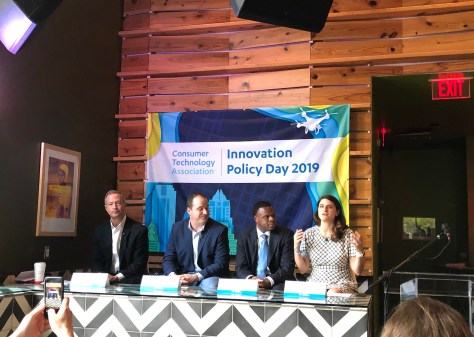O’Malley: Federal, state government need county-style leadership

LONG BEACH, Calif. — Former Maryland Gov. Martin O’Malley had a confession Friday: He misses local government.
“I enjoyed local government much more than state government,” O’Malley said in the closing session for the National Association of Counties’ Technology Innovation Summit. “I was always a little sad that I had to leave being mayor.”
O’Malley, who wrapped up his tenure as mayor of Baltimore in 2007, said he missed the “feedback loops” that local government use to get the job done — both with technology and in other city operations.
Now after two terms as Maryland’s governor, and a failed presidential run, O’Malley turned his sights back toward local government as a senior adviser for the MetroLab Network. The network aims to foster strategic partnerships between universities and cities to help solve city problems.
[Read more: O’Malley lays out MetroLab goals, charges leaders to encourage tech officials]
“When I was elected mayor of Baltimore in 1999, it was not because our city was doing well. I ran because I knew the people in our city wanted to change that reality,” O’Malley said.
During O’Malley’s tenure as mayor, he implemented a data-driven governing dashboard called CityStat, which he took from the example established by the New York City Police Department, and which became a model used by many government leaders. But he said one regret was not tapping into the resource of knowledge and assistance that existed in the universities in and around Baltimore.
“We were adept at borrowing good ideas from other cities,” O’Malley said. “We were not so very good at borrowing research, development or deployment of new technologies and new ideas from our own universities.”
WIth MetroLab, O’Malley is trying to make up for lost time. As an adviser, he and the MetroLab team are focused on four areas where they will encourage city-university partnerships to help fix city problems — traffic, data analytics, urban sensor networks and sustainability.
“Ten years from now, people will wonder how we ever deployed human services without having a better sense of risk assessments and knowing the histories of people,” O’Malley said.
The same drive to progress through technology that he brings to MetroLab, O’Malley hoped to bring to the federal government if he won the U.S. presidential race, he said.
“I do think what is desperately needed at the federal level is a new way of executive management that is much more akin to how most county executives and mayors run their own governments,” O’Malley said. “There’s really nothing like that in the federal government. All of that purpose driven leadership seems to leave us.”
But technology could be that equalizer, O’Malley said.
“We act like it’s too complex or too much for us, but this technology scales up rapidly and nicely,” O’Malley said. “The fact that we can scale makes us ripe for a revolution in a very positive way to occur in the management of our federal bureaucracies.”





